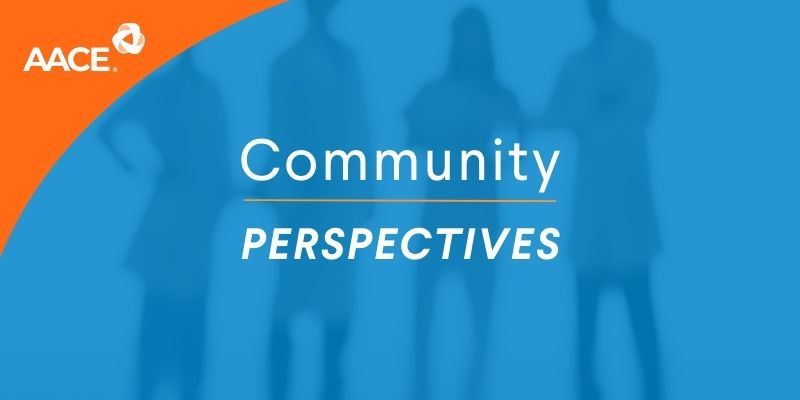
- Log in to post comments
I am honored to have been selected as the 2023 recipient of the AACE Braverman Award, which provided me with invaluable clinical exposure to menopause medicine. I am a third-year endocrinology fellow at Duke University with a strong clinical and research interest in menopause medicine. I am deeply committed to delivering equitable care and empowering women with the knowledge and resources they need to make informed decisions about their health and well-being. Throughout my fellowship, I have been dedicated to equipping myself with the expertise and skills necessary to provide comprehensive care to menopausal women as they navigate this important phase of life.
Following the initial Women’s Health Initiative (WHI) studies, menopausal hormone therapy (MHT) prescriptions declined sharply. Although subsequent research and age-stratified WHI data have demonstrated safe MHT initiation in women under 60 years of age, within 10 years of menopause onset and without contraindications, medical training and clinical practice have yet to adapt to these findings. Consequently, many women are left without viable options for managing their menopausal symptoms.
As a specialty that is dedicated to the study of hormone systems, I fully believe that it falls within my purview as an endocrinologist to provide care to women with symptomatic menopause. I strongly believe that health extends beyond risk mitigation; it also encompasses quality of life and day-to-day well-being. While as endocrinologists, we deal with downstream health consequences of estrogen withdrawal including bone health and metabolic changes, our approach to managing menopause-related symptoms can be limited. I pursued specialized training through AACE to improve my clinical competency in the provision of comprehensive menopause care.
Thanks to this award, I had the unique opportunity to work with Dr. Camille Moreno, director of the Midlife Women’s Health and Menopausal Medicine Program at the University of Utah. Over the course of four weeks, I gained an understanding of the diverse clinical presentations of menopause, the risk-benefit profile of differing formulations and routes of MHT, and monitoring and managing potential risks of MHT. I also learned when to consider hormonal versus non-hormonal therapies, the broader health implications of menopause, and most importantly, how to tailor treatment and counsel patients on the available options.
Working with midlife women navigating this pivotal stage of life has been deeply rewarding. We frequently encountered women who had sought answers from multiple clinics for their various menopause-related symptoms before finding their way to our clinic. The relief that they experience when they gain an understanding of the basic physiology of menopause, what to expect with transition, and the available tools to manage symptoms is truly remarkable to witness. Disturbingly, we often encountered women who had turned to the supplement industry or community hormone clinics that offered compounded hormone formulations without adequate discussion of risks and benefits. This underscores a critical gap in our medical system in failing to respond swiftly enough to the growing demand for comprehensive menopause care. As a result, women often endure a long and challenging journey before finding a provider who is equipped to offer informed and compassionate care through and beyond their menopause transition.
This experience has deepened my interest in menopause medicine and highlighted the critical need to bridge the gap in midlife women’s health. With an average of 6,000 women entering menopause daily, it is essential that providers are equipped with the tools to deliver this care consistently. I aspire to be part of the movement that advances the quality of care provided to midlife women, recognizing that this has far-reaching benefits. These benefits not only improve quality of life and health outcomes for women, but also contributes to a broader economic impact by reducing missed workdays and enhancing workplace productivity associated with untreated menopause symptoms. Further, it was rewarding to work alongside Dr. Moreno and learn the process of establishing and managing a center dedicated to midlife women’s health. I aspire to build a clinical program that offers comprehensive, dedicated care to midlife women, modeled after this exemplary program.
I extend my deep appreciation to AACE, Dr. Camille Moreno and the Duke Endocrinology Fellowship Team (Dr. Anastasia-Stefania Alexopoulos, Dr. Matthew Crowley, and Traci Womble) for enabling this invaluable extramural rotation.
The Dr. Lewis E Braverman Endocrine Fellow in Training Educational Grant is a one-of-a-kind grant program offered to fellows in the United States to take part in unique clinical experiences worldwide.
Learn More
Login to leave a comment and join the conversation